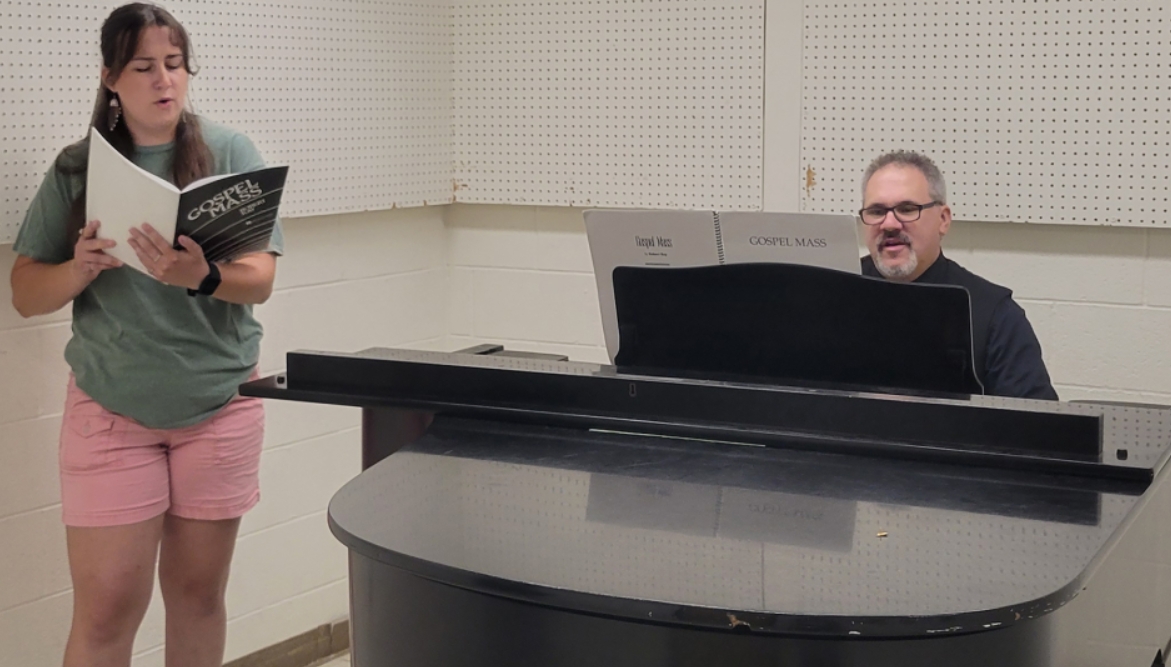By Jalyn Bolyard, Online Editor
Recently, West Liberty University has been in the public eye about serious incidents, such as allegations of sexual assault and domestic violence, concerning past and current WLU students. Questions have been raised on how WLU treats these incidents, and the steps that are taken after they occur.
West Liberty, like other universities, has a Student Code of Conduct that all students must abide by. A copy of this can be found on WLU’s website, under the Residence Life section.
Types of misconduct include, but are not limited to: acts of dishonesty (such as plagiarism), disruption or obstruction of teaching, physical abuse (which includes acts of sexual misconduct and domestic abuse), attempted or actual theft, hazing and more. A full list of offenses can be found in the Student Code, that is always available online for students to utilize.
However, students must act the same way on-campus as they do off-campus, as the Student Code does not just end once students leave campus grounds.
“Our Student Code of Conduct covers off-campus incidences, as well as on-campus,” said Scott Cook, Vice President of Student Services/Registrar. “Our Student Code of Conduct states that when a student makes an application to WLU, that’s a voluntary decision to apply. Once we have acted and accepted an application, then those students must follow that student code of conduct.”
“The way we handle [domestic violence] depends on the where it occurred,” said President Dr. Stephen Greiner. “If it occurs on campus, or in a university sponsored event, then it’s a Title IX investigation. If it occurs in town or off-campus, we look at it as a violation of the code of student conduct. Ours is not a legal investigation, that’s handled through the courts. When something happens on campus, that is considered domestic violence or any kind of act of violence, we look at it as a Title IX investigation.”
If a domestic violence or sexual assault occurs on campus, a Title IX investigation will take place. Resources about Title IX, from how to file and steps for students to take, can be found here.
Any member of the University can file charges against a student for violations of the Student Code, preferably within five days of the offense. The Judicial Coordinator may then conduct an investigation to determine if the charges need to be taken to a hearing, or if they can be mutually agreed upon party members.
If the charges are not admitted to or parties can’t come to a mutual agreement, it then goes to a hearing in front of the Judicial Board.
Judicial Board hearings, according to the Student Code, are normally done in private. The complainant, accused students and their advisers can attend the entire meeting, except for deliberations. The board can be composed of students, staff and faculty.
Don’t let the word “adviser” confuse you – this person does not necessarily have to be the student’s academic adviser who students schedule classes with. Instead, it can be a lawyer, or even a trusted adult that a student wants to be there. Although students may bring an adviser, according to the Article IV, Section A, 4d of the Student Code, advisers “are not permitted to speak or to participate directly in any hearings before a Judicial Board.”
If the incident involves more than one accused student, hearings for each student may be done jointly or separately, depending on the situation.
Witnesses can also be arranged to come in and speak to present information pertaining to the incident in question.
“After the Judicial Board finishes receiving all information determined to be pertinent, the Board members shall deliberate privately and determine by majority vote whether the accused student violated the Student Code as charged,” states Article IV, Section A, 4i of the Student Code.
“The Judicial Coordinator has nothing to do with determining if someone is found responsible or not; that relies on the Judicial Committee,” said Cook. “The Judicial Coordinator schedules the hearing, meets with individuals to explain how the hearing will go, runs the meeting, as far as presenting the evidence, calling witnesses; and once that is completed, the Judicial Committee determines whether the individual was responsible or not responsible. If the individual is found responsible, they then determine what sanctions they put in place.”
Sanctions include, but are not limited to: a warning, probation, loss of privileges, full restrictions, fines, restitution, discretionary sanctions, residence hall suspension, residence hall expulsion, University suspension, University expulsion, revocation of admission and/or degree, and withholding degree. A combination of these sanctions can also be imposed, depending on the circumstance. A full detailing of sanctions can be found in the Student Code.
An appeal can also take place after the initial hearing, which also must be filed to the Dean of Students within five school days of the decision.
If a student ever feels like they are in a position where they should file a report, do so. Do not feel like you have nobody to turn to.
If you would like to view the Student Code of Conduct, you can find it online on West Liberty University’s website. If you have any questions about the judicial processes, contact any of the residence life staff members, or Title IX Coordinator Diana Harto, at 304-336-8139.
While allegations of sexual assault and domestic violence are serious issues to be handled, these procedures are in place so that the University can deal with them in a consistent and timely manner. The University staff works hard to determine the punishments, if any, to be given in the situations and to give students peace of mind.
“We are very strongly in support of our students,” said Greiner.
Writers Sean Kranske, Emily Salvatori and Josh Smith contributed to this article.
Photo credit: Megan Sayre







